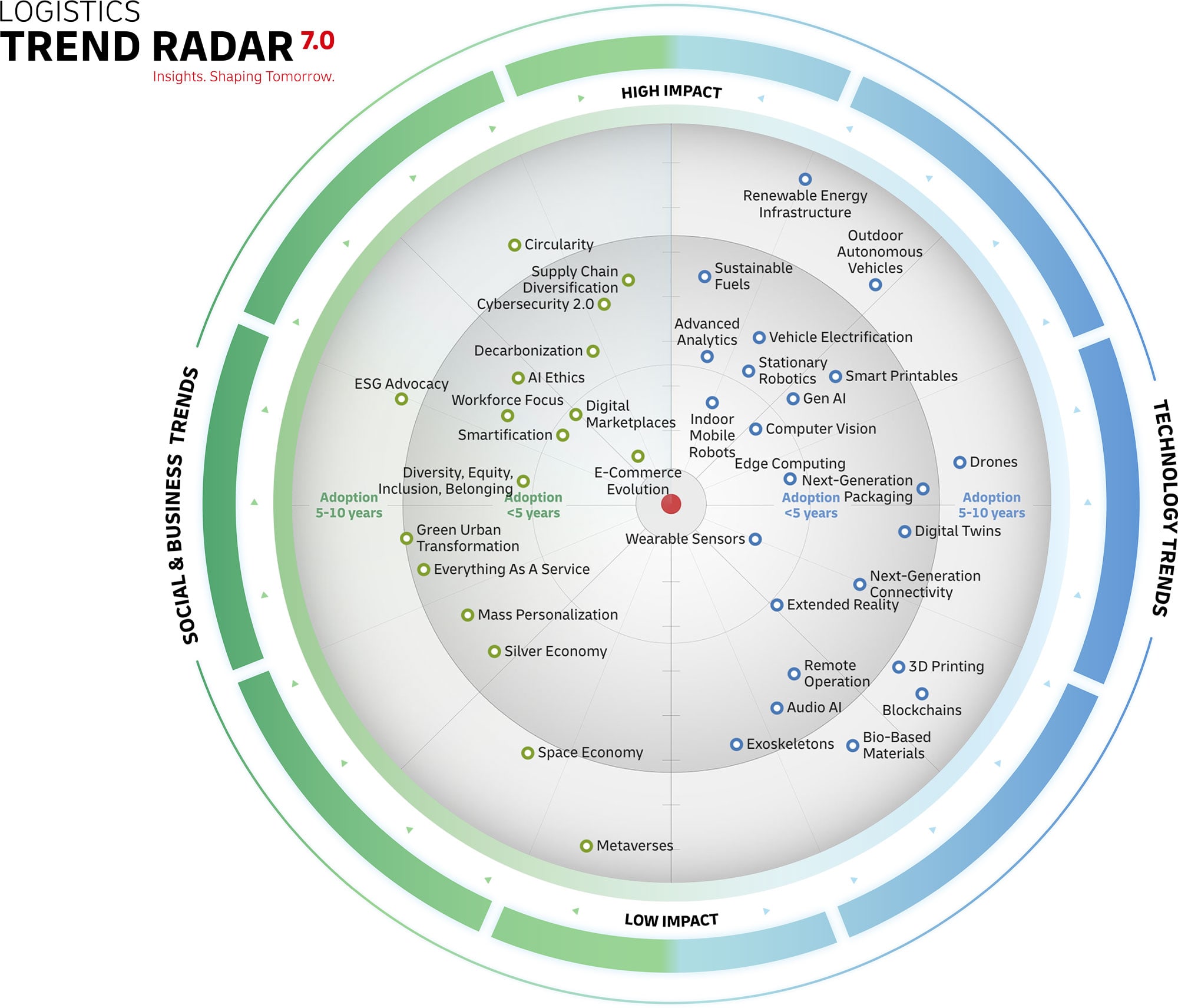The trend of Workforce focus refers to prioritizing employee needs, desires, and wellbeing as the foundation for organizational success. This involves crafting a work environment that puts employees’ interests first, so their overall experience is enhanced, from the first touchpoint during the hiring process to the moment they leave a company.
Workforce focus across all industries, including logistics and the supply chain, will significantly alter future working conditions. Reasons for this trend are demographic change, changing employee expectations and needs, and technology developments such as artificial intelligence (AI), robotics, and digitalization. This global phenomenon will likely bring challenges for logistics leaders across the world.
Overall, there will be fewer available workers and over time the existing workforce will be replaced by younger generations with different aspirations; jobs they perceive as unattractive, such as delivering parcels and loading trucks, may not be filled appropriately.
Workforce focus is driven by the younger generation’s attitudes about work, as compared to former generations, these people have different employer and job expectations. Focus is much more on work-life balance, flexible working hours, new work models such as the four-day week, and opportunities to learn and follow a purpose. Younger employees expect personalized work experiences that fit their needs, comparable to the experiences they have as consumers and compelling employers take these topics seriously.
Technological developments are influencing and enabling employee centricity, too. New technologies offer the opportunity to tailor work to the individual, creating an automated and augmented workplace.
First and foremost, employers must create an employee-centric strategy and work culture in order to attract and retain talent in the future.
With an employee-centric strategy, logistics organizations can maintain a suitable workforce in terms of size and skills to match demand and succeed in navigating a challenging, changing, fast-paced environment.
In the next five years, organizations will increasingly feel the pressures of demographic change. While many are already taking proactive steps to attract and retain talent, it will take some time before these are widely adopted and organizations fully implement employee-centric strategies.
As companies realize an employee-centric culture is highly relevant in logistics and logistics is inherently a people-centered business, it is obvious that employee wellbeing and engagement are essential to successful operations.
Workforce focus has a significant impact on long-term success. Companies that invest heavily in the employee experience are 11.5 times more likely to be ranked among the best places to work on Glassdoor and 2.1 times more likely to be listed among the most innovative companies list by Forbes. Moreover, happiness at work, which can result from a good employee experience, is one of the most important factors in employee retention, as half of employees who enjoy their work are 49% less likely to say they would consider taking a new job than employees who do not enjoy their work.















